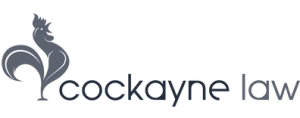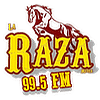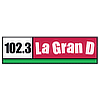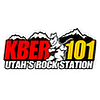How to Report a Car Accident in Utah: A Clear, Step-By-Step Guide
First, call 911 if anyone is hurt, killed. Also, if the damage seems $2,500 or more. Hand over all the information, take photos, and move to safety. Tell your insurer promptly. Get your police report from Utah’s Public Records Portal if an officer investigated.
Right after a crash, most people feel shaken and unsure. Your first priority must be keeping everyone safe, then you must report the accident in the correct way. In Utah, certain crashes must be reported to the police. Insurance also has rules on when and how to notify them.
This guide walks you through each step in plain language. You will learn when to call the police, how to report to your insurance, where to get your report, and what comes next. If you were hurt, you will also see why speaking with a car accident injury attorney Utah drivers trust can protect your rights.
Key Points You Should Know
- Call 911 for injuries, death, major damage.
- Exchange names, insurance, and license info.
- Utah’s threshold is $2,500 in damage.
- Get your crash report through the DPS portal.
- Utah uses no-fault PIP for injuries.
When must you call the police in Utah?
Utah law sets clear times when you must involve law enforcement. Any injured or killed person, or property that appears to have been damaged by $2,500 or more, must be reported to police right away. Officers investigate and file a crash report. The Department of Public Safety can also require involved drivers or witnesses to file a report within ten days of a request. If you are unsure about the repair cost, call to be safe.
These rules help protect you later with insurance and possible claims. They also create a neutral record of what happened. And who was there, and what each person said at the scene. Keep in mind, there are extra duties at the scene. Like, giving your name, contact details, and insurance to the other driver and any officer on site. Failing to stop or share information can bring penalties.
What to share at the scene
Give your name, address, vehicle registration, and insurance company with a phone number. Show your driver license on request to the officer or the other driver.
How to report a car accident to the police?
First call 911 if anyone is hurt, a road is blocked, or a hit-and-run has occurred. Or you suspect impairment. If it’s not an emergency and there are no injuries, then you should call a local non-emergency number. Minor fender-benders may be possible to file online in some cities. For example, Salt Lake City allows online reports for select minor incidents after a review, and will give you a case number once approved.
If the crash happened on a freeway, contact Utah Highway Patrol. A copy of the investigation report can be requested through the Utah Department of Public Safety’s Public Records Portal after an officer has conducted an investigation. GRAMA law requires that portal to process reports. Save the case number the officer gives you; your insurer will ask for it.
Tip: If you filed online with a city and later find injuries or higher damage, follow up by calling the police so the report reflects the true severity.
Reporting a car accident to insurance
Tell your insurance company as soon as you can. Utah’s Insurance Department advises calling your agent or insurer quickly with your policy number, date, location, and other details. Send photos of the damage and the other driver’s information. In Utah’s no-fault system, your own PIP benefits pay initial medical costs, lost income up to set limits, and certain household services.
Many policies say to report a loss “promptly,” and some carriers suggest doing so within a few days. If you delay, you risk disputes over coverage. You can seek payment from the other driver’s insurer when fault is clear, but remember that a claim with another company is a third-party claim and that insurer works for its policyholder, not you.
What should I do if I have a car accident in Utah?
On city streets: Call the local police department. Some departments have online systems for minor incidents. Salt Lake City provides an online option for certain limited scenarios; after review, you receive a case number by email.
On freeways or state routes: Call Utah Highway Patrol. If a trooper investigates, you can later request the report through the state’s Public Records Portal. Reports are protected records, and only certain parties can get them.
To get a copy of the report: Use the Department of Public Safety’s portal to order the report once it is processed. You may also request from the local agency that handled the crash. Keep this report for insurance and any legal review.
How to handle a minor car accident?
In the situation that no one has been injured and the cars are able to move, turn on hazards and move out of traffic.
You should also exchange details. Take close-up pictures of both vehicles, the wider scene, skid marks, and any nearby property damage.
Make a list of the names and telephone numbers of any witnesses. Even in a minor crash, you still need to notify police. If the damage looks high or if the other driver refuses to share information.
Utah’s law uses $2,500 as the benchmark for when a crash becomes reportable, and an officer may need to document it. If you are not sure, call. File your insurance claim promptly. And keep your receipts.
For small scrapes under your deductible, you can discuss options with your agent. But remember that hidden damage can add up. Medical issues can also appear later, so consider a quick checkup even if you feel fine at the scene.
What happens after you report a car accident
A police report creates an official record. In Utah, crash reports are protected and only shared with involved parties and others allowed by law. If an officer investigates, they submit the DI-9 report to the state after finishing the investigation.
If you need a copy for your records or for your claim, you can request one. You will need to provide your insurer with the report, the photos, the repair estimates, and any medical records. If a citation was issued, it may appear on your Motor Vehicle Record; Utah’s Driver License Division shows citations, arrests, suspensions, and revocations on the MVR for set periods.
Keep all paperwork organized. If a claim is denied or delayed, you can ask the Utah Insurance Department for help or speak with a car accident lawyer who handles these issues every day
Hire a car accident injury attorney Utah
Insurance adjusters are trained to limit payouts. They use the facts, the report, and the law to keep costs down. When you are hurt, you may miss key steps or accept a quick offer that does not cover future care.
A local car accident injury attorney Utah residents trust can step in, gather proof, read the policy fine print, and handle talks with both insurers. Many lawyers offer free case reviews and only get paid if they win, so there is little risk in getting help early.
Chris Cockayne and the team at Cockayne Law
Chris Cockayne leads a Utah personal injury firm that focuses on auto accidents and related injury cases. His team helps clients across the Wasatch Front with clear advice, fast communication, and hands-on support, from getting the crash report to working with doctors and insurers.
When you reach out, you connect with a real person who knows Utah’s no-fault rules and the $3,000 injury threshold that can open the door to further recovery. Cockayne Law offers free consultations and serves clients statewide from its West Jordan office. For direct help after a crash, contact Chris Cockayne and his team to review your case and next steps.
Final Thoughts
In Utah, reporting a car accident the right way protects you a lot including your health, your finances, and your claim. Call the police when required, exchange information, take photos, and notify your insurer fast. Save your case number and request the report when it becomes available.
If injuries appear or your bills grow, speak with a car accident injury attorney Utah drivers trust to guide the claim. A short call can help you avoid mistakes and keep your case on track. If you want hands-on help, Cockayne Law is one option local drivers use.
FAQs
Do I have to report every car accident to police in Utah?
No. You must notify law enforcement right away if anyone is hurt or killed, or if total property damage looks to be $2,500 or more. When in doubt about damage, call. An officer’s report can help with insurance and later claims.
What should I tell my insurance company after a crash?
Call as soon as you can with the date, time, location, other driver’s info, photos, and the police case number. Follow your policy’s “duties after loss.” Utah’s Insurance Department urges quick contact to avoid delays or disputes.
Does a crash go on my driving record?
Your Motor Vehicle Record shows critical things, including citations, arrests, suspensions, and revocations. It does not list every crash, but outcomes tied to the crash can appear. Keep copies of your report and any case paperwork.
How does Utah’s no-fault system affect me?
Your own PIP pays first for medical bills and some lost income. To claim pain-and-suffering from an at-fault driver, your injuries must meet Utah’s legal threshold, such as over $3,000 in medical expenses or a fracture.
How fast should I tell my insurer?
Right away is best. Many policies require prompt notice, and some carriers suggest contacting them within a few days. Quick reporting helps avoid coverage disputes and speeds repairs and medical payments.
Do I need a lawyer for a minor crash?
Not always. For small damage and no injuries, you can often handle it with your insurer. If you have medical bills, missed work, or fault is disputed, talk with a car accident injury attorney Utah drivers recommend or search “lawyer near me for car accident” to get advice.









